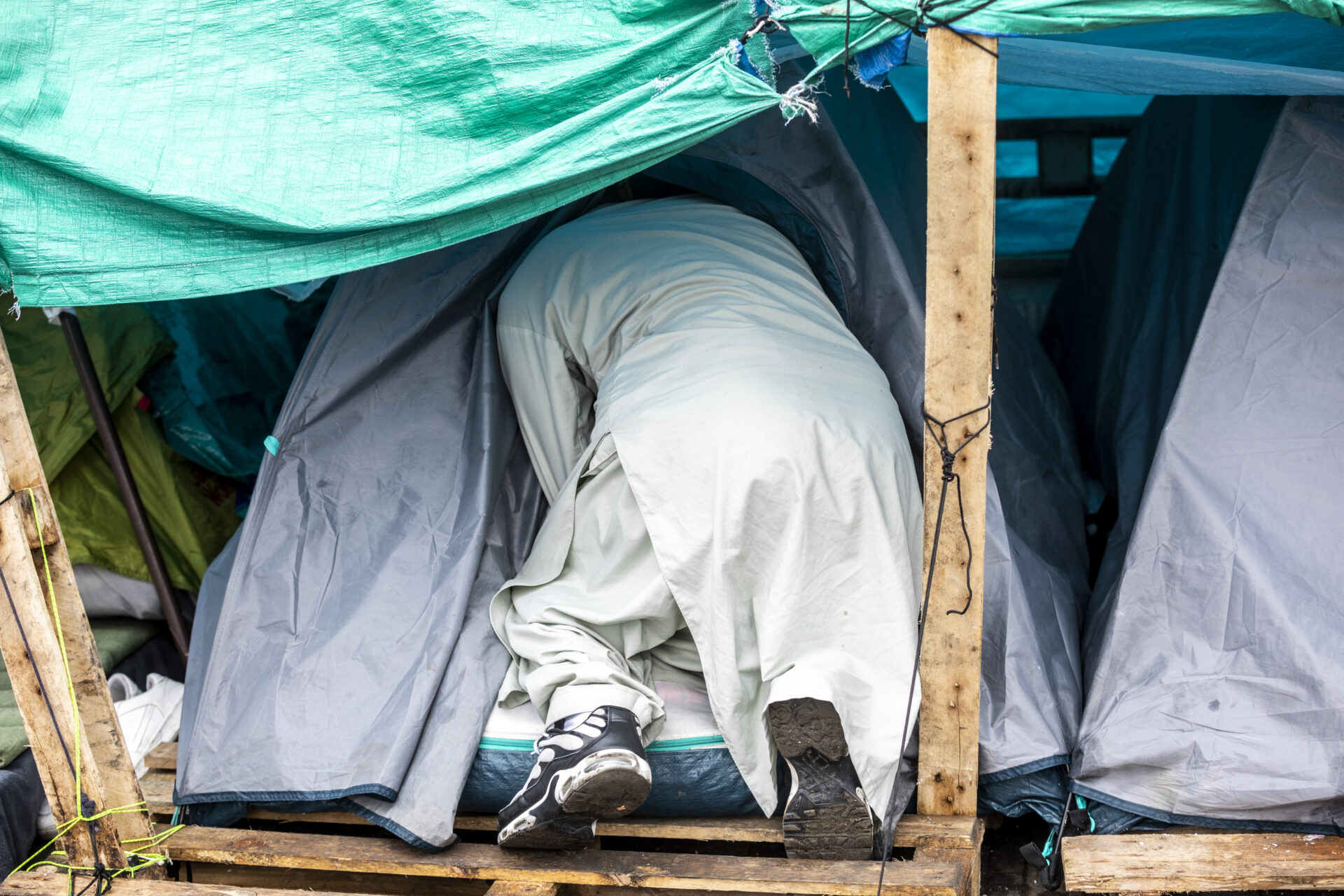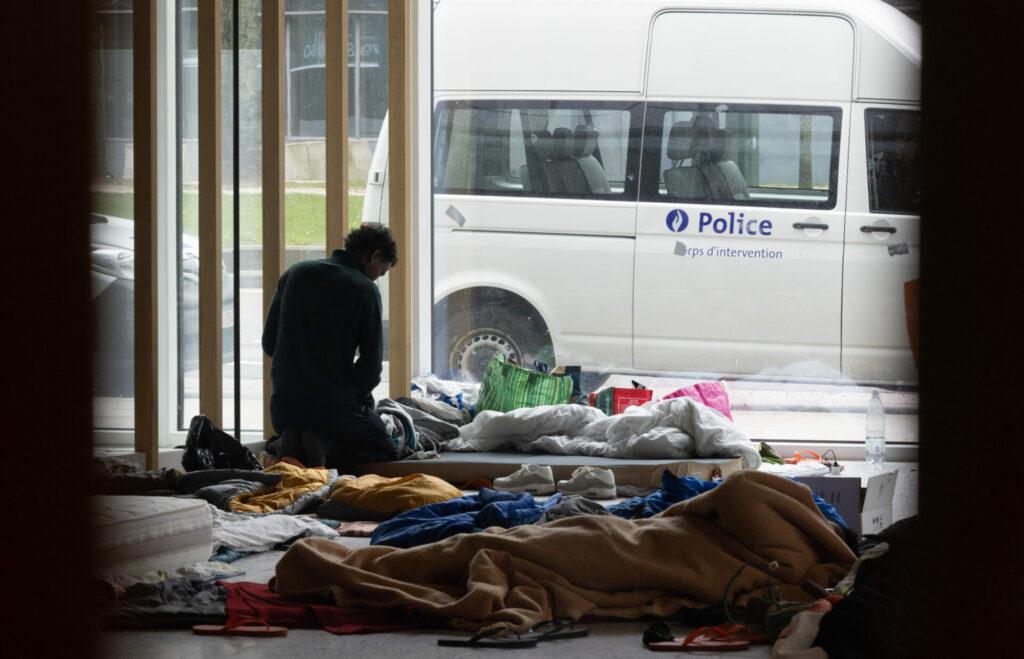Belgium's current policy is leaving hundreds of asylum seekers out in the cold, resulting in thousands of convictions against the state and Fedasil, in charge of reception. According to a new poll, however, many Belgians believe that "too much" is being done to assist asylum seekers.
Belgium has been slow in its response to the asylum reception crisis: for some 18 months, asylum seekers have not been given the shelter they are legally entitled to, resulting in thousands sleeping rough and a sea of convictions. Last month, the core cabinet of ministers agreed to create more spaces and remedy this crisis.
However, a major poll by several Belgian news outlets has shown more than half of the country's residents believe the government is already doing "too much" for asylum seekers, while as many as 63% of respondents said the government should stop creating additional reception places for asylum seekers.
"These results seem to me to be a direct result of the reception crisis and the political communication around this, something we feared would happen," said Thomas Willekens, Policy Officer at Refugee Council Flanders (Vluchtelingenwerk Vlaanderen), referring to the fact that the government often says it is doing a lot, and that it cannot do more.
"This is complete nonsense. When the war in Ukraine broke out, Belgium was able to move mountains with a yes we can mentality, which it also applied during the 2015 migration crisis. This resulted in a wave of support from people," he explained.
"This time around, the government focussed on the few cases of fraud, arguing that too many people are migrating here. That is what the results seem to reflect. The general public is mirroring this message."
Regional and political divide
Negative views on helping asylum seekers are more common in Flanders: voters of the Flemish (far) right-wing parties N-VA and Vlaams Belang were, most opposed to asylum seekers receiving the shelter and guidance they are entitled to under international law.
However, the results were not much different in Wallonia, rebutting the assumption that those in the south are pro-refugees, meaning the empathetic attitude of French-speaking parties does not quite match the gut feeling of the average Walloon.
In Brussels, more people are in favour of additional sheltered places for asylum seekers, possible due to the fact that people are more likely to have witnessed refugees sleeping on the streets during the winter months.

The tents in front of the Petit Chateau in Brussels. Credit: Belga/ Hatim Kaghat
Belgians' opinions on this issue will likely permeate into politics when it comes to voter behaviour, but also the stance taken by parties on the matter, particularly in the run-up to the 2024 elections. French-speaking parties may start to adopt a harsher migration discourse to tap into an additional electorate by doing so.
Willekens argued that it is possible the government will continue with the current policy or could even consider doing less, in which case the crisis will likely continue until the elections.
"We suspect that, at that point, only right-wing parties stand to gain from this. And at the end of the day, it will be asylum seekers who will lose and will see their rights further wane."
Related News
- Belgium using 'deportation planes' to transport asylum seekers within Europe
- New EU Migration Pact aims to strengthen trust between states, but dehumanises crisis
Meanwhile, Willekens stressed that Fedasil and Belgium continue to break the law by failing to provide shelter to asylum seekers, while also ignoring convictions over its failures.
"People should wake up to the fact that the rule of law is systematically being violated in the country, which should be of great concern to all of us," Willekens concluded.

